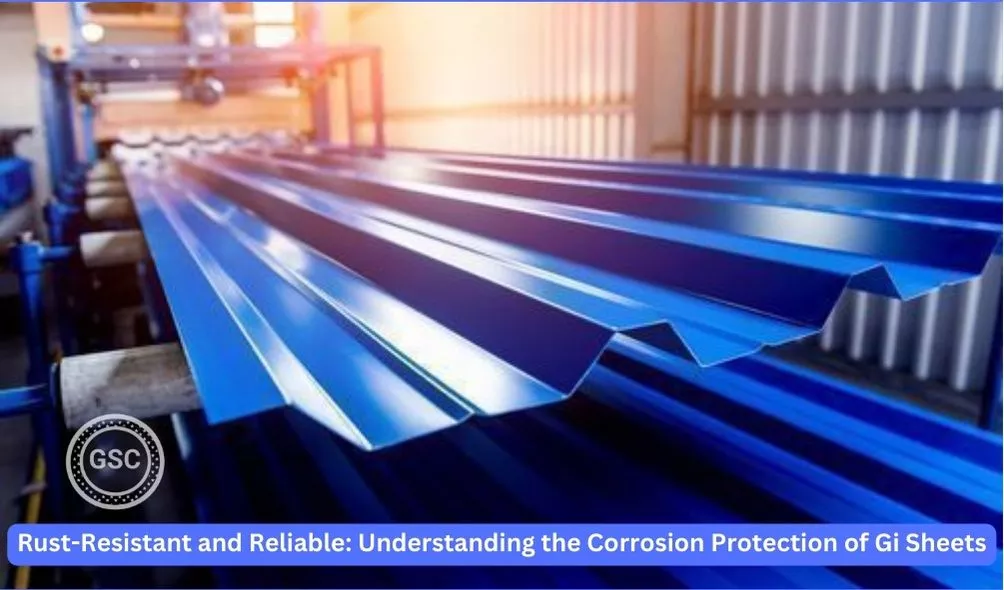As a construction enthusiast who has spent a considerable amount of time working with various materials, I can attest that one of the biggest concerns in construction, especially when it comes to roofing and cladding, is corrosion.
Corrosion can significantly reduce the lifespan of structures and lead to costly maintenance and repairs. That’s where Galvanized Iron (Gi) sheets come into play.
In this article, I’m going to dive into the fascinating world of Gi sheets, focusing on their corrosion protection capabilities.
Table of Contents
Why Gi Sheets Are a Rust Buster’s Dream

Before we get into the details of how Gi sheets protect against corrosion, let’s briefly understand what Gi sheets are. Gi sheets are steel sheets that have been coated with a layer of zinc. This zinc coating is what sets them apart from regular steel sheets and makes them rust-resistant. Now, let’s explore the reasons behind this rust-resistant quality.
Zinc’s Sacrificial Role
One of the key reasons Gi sheets are so effective at preventing corrosion is because of the zinc layer’s sacrificial nature. When moisture comes into contact with the steel surface, the zinc coating reacts with it. Instead of the steel corroding, the zinc takes the hit. This sacrificial action means that even if the zinc layer gets corroded over time, the underlying steel remains protected. This is often referred to as cathodic protection.
Formation of Protective Layers
As the zinc reacts with moisture and oxygen in the air, it forms protective layers such as zinc oxide and zinc carbonate on the surface. These layers act as a barrier, preventing further corrosion. The formation of these protective compounds is an ongoing process, which means that Gi roofing sheets can provide long-term protection against rust.
Durable and Resilient
Gi sheets are known for their durability and resilience. They can withstand harsh weather conditions, including heavy rains and extreme temperatures, without losing their corrosion resistance. This makes them an ideal choice for outdoor applications, such as roofing and cladding.
Also read: Corrugated Gi Sheets vs. Plain Gi Sheets: Pros and Cons
Gi Sheets in Construction: Unveiling Their Role in Building Strong Structures
Best Gi sheet prices and resources in 2024.
Factors Affecting Gi Sheet Corrosion Protection

While Galvanized Iron sheets are excellent at resisting rust, there are factors that can affect their corrosion protection:
1. Zinc Coating Thickness: Thicker zinc coatings offer better protection. The thickness is usually measured in micrometers (µm). The greater the thickness, the longer the Gi roofing sheet can resist corrosion.
2. Environmental Conditions: The local climate and the specific conditions to which the Galvanized Iron sheets are exposed can influence the rate of corrosion. In areas with high humidity or pollution, corrosion might occur more rapidly.
3. Maintenance: Regular maintenance, such as cleaning and inspection, can prolong the lifespan of Gi roofing sheets. Removing dirt and debris prevents the buildup of substances that could lead to corrosion.
4. Scratches and Damage: Any damage to the zinc coating, like scratches or deep cuts, can expose the steel underneath to corrosion. It’s important to address such damage promptly.
In Conclusion

Galvanized Iron sheets are a rust buster’s dream come true. Thanks to their zinc coating, these sheets offer reliable and long-lasting corrosion protection. As someone who values the integrity and longevity of construction projects, I’ve come to trust Galvanized Iron sheets for their ability to stand the test of time, even in challenging environments. When it comes to safeguarding your structures from rust, Gi sheets are a dependable choice that can ensure your buildings stay strong and reliable for years to come.


3 thoughts on “Rust-Resistant and Reliable: Understanding the Corrosion Protection of Gi Sheets”